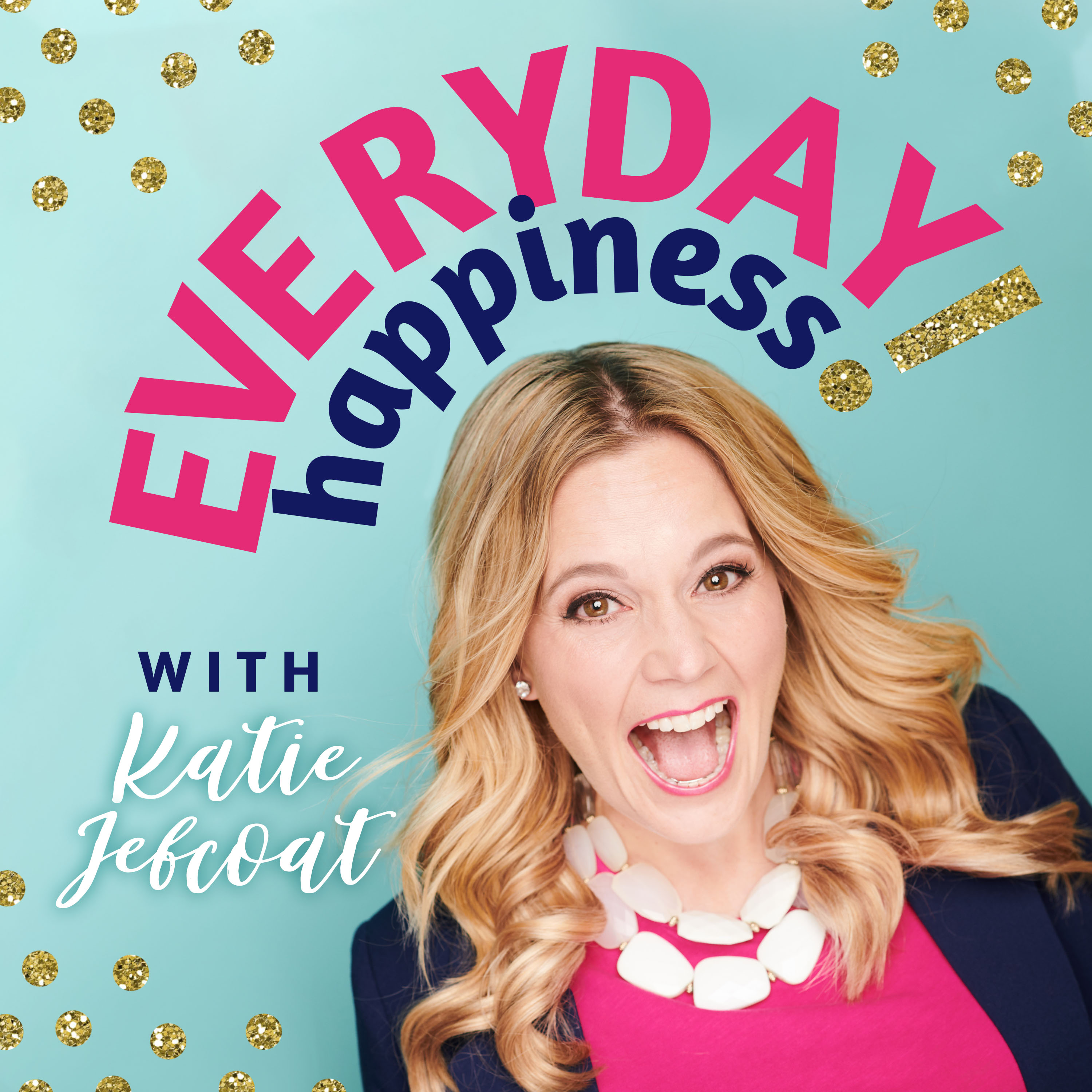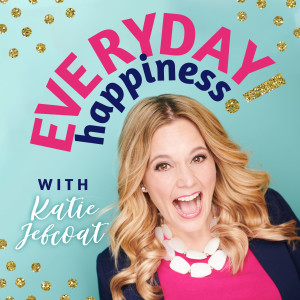
28.4K
Downloads
674
Episodes
Do you feel overwhelmed with your todo list? Is "creating fulfilling happiness" missing from that list? Everyday Happiness with Katie Jefcoat is here to help you. In 2-minutes a day, over time, you’ll discover how to reduce overwhelm and create lasting happiness through Katie’s signature method of Intentional Margins, happiness science, and musings about life. Start your day with a positive mindset. Many of us can get deep in the feeling of overwhelm. The anxiety of our own ambition can weigh heavily on our thoughts and emotions. We lay down and close our eyes at night and our chest begins to feel heavy. More items on the to-do list than the day before. How will we ever going to get off the hamster wheel of to-dos? When are we going to start living life for more than the hustle? As a recovering lawyer and passion driven entrepreneur, Katie knew something had to change. What she found is that you can have harmony, be intentionally productive and create massive impact, all at the same time - without feeling guilty. So she asked herself a simple question: "How can I get off the hamster wheel and how can I show others how to do the same? She knew she'd had a system for herself, but she’d never put it into defining words. On August 15, 2019, she sat down at her dining room table with her friend Jenna (her business bestie). Post-It notes covering the table. This is where she first defined the concept of Intentional Margins. What are Intentional Margins? INTENTIONAL MARGINS™ (n): A buffer of space and time to create harmony between your to-do’s and your priorities. Now you can get the support you need to manage your overwhelm, one little tip at a time. Regardless of the industry, Everyday Happiness blends inspiration with a pragmatic approach to finding Harmony. You'll be encouraged to throw “balance” out the window for a more achievable approach called harmony. Through Intentional Margins™, you'll be encouraged to develop what harmony means to you, by identifying your priorities at work and at home. Every day, we'll end the podcast help you feel equipped to jump off the hamster wheel of overwhelm and go out there and crush your day. --About the Host-- Katie Jefcoat is a community curator, speaker, author and motivator who supports ambitious women (and a few good men) move from feeling hectic to harmonious. As a recovering trial lawyer, she knows first hand what it feels like to have a demanding job. As an entrepreneur with a passion that lights her hair on fire and a busy family she’s in the thick of it with you. Many people strive for balance and think overwhelm is just a part of life. Sadly, the hustle culture and our never-ending to-do list is creating a life where our priorities are getting the leftover scraps of time. Katie introduces people to what she calls - Intentional Margins™ - a kind of life in which they reduce randomness, create harmony between their to-dos and their priorities and intentionally enjoy the meaningful parts of life - without feeling guilty. Without exposure to a different way, we remain stuck on the hamster wheel of to-dos and never find the “balance” we yearn for. Katie works diligently to expose her community to different ways of doing things, because she fundamentally believes we deserve to make time for our priorities. We deserve to live a life of harmony. And it’s within our control to create it. Katie curates a smorgasbord of content related to managing your calendar, handling overwhelm, setting boundaries, reducing randomness, saying no, self-care, the power of your choices, and more in her Intentional Margins™ Membership Community -- which she calls the coziest virtual coffee shop (on Facebook). Connect and learn more at www.katiejefcoat.com.
Episodes

Sunday Nov 28, 2021
180-How Our Mind Hinders Our Happiness #3
Sunday Nov 28, 2021
Sunday Nov 28, 2021
Our brains are super complex but sometimes the nuance gets lost when the wires cross between our conscious and subconscious, our prefrontal cortex and the limbic system. This is when we need to be super intentional and really think about why our intuition is telling us. This series will dive into some of the ways, the biases, our brain gets it wrong so that we can be better prepared the next time we notice this happening.
One way is having wants (whether conscious or subconscious) based on social comparison, which we discuss right now.
Transcript:
Welcome to Everyday Happiness where we create lasting happiness, in 2 minutes a day, through my signature method of Intentional Margins® (creating harmony between your to-dos and your priorities), happiness science, and musings about life.
I'm your host Katie Jefcoat and I was listening to the Yale happiness course by Dr. Laurie Santos.
Yesterday we talked about reference points that were mostly internal. I may make 30K a year and I want to make 50K, for example.
But today, we’re talking about reference points when it comes to social comparison. Look, it’s everywhere, right? Whether it’s on TV or on your street, social comparison is out there, and we are constantly using it as a reference point to determine our own happiness. Some more than others.
There is a study, where they looked at office workers and they found that if you knew you earned less than the other peers you worked with, you would be less happy. For no other reason. You could buy the car, the house, the life you wanted. But you were less satisfied with your job if you knew others were making more money than you.
This is a problem when we ask, what counts as a reasonable social comparison? Is it Beyonce or Real Housewives of Beverly Hills? Or is it the colleague with the similar background and work? When we are scrolling Instagram, watching TV, glued to Tik Tok, we are watching all of these highlight reels with people with so much more means that us. What this is doing, is messing up our intuition as to what “normal” is. We start to think, to use as a reference point, that this wealth is normal and we start to feel really crappy about our own circumstances and our brain tricks ourselves into thinking more of this stuff will make us happier. But that’s just not how this works.
The lesson is that we have to be intentional and check ourselves when it comes to who and why we use social comparison, because we are on auto-pilot doing it anyway, this is the opportunity to take a step back and be more mindful.
Until next time, we’d love for you to follow us over on Instagram @everydayhappinesswithkatie where we share quotes, episodes and have conversations with all of you.
The science mentioned in this episode can be reviewed at: Solnick and Hemenway (1997). Is more always better?: A survey on positional concerns. Journal of Economic Behavior and Organization, 37, 373-383.
Get Everyday Happiness delivered to your inbox by subscribing at: https://www.katiejefcoat.com/happiness
And, let’s connect on social at @everydayhappinesswithkatie and join the community on the hashtags #IntentionalMargins and #everydayhappinesswithkatie on Instagram
Links: https://onamission.bio/everydayhappiness/

No comments yet. Be the first to say something!